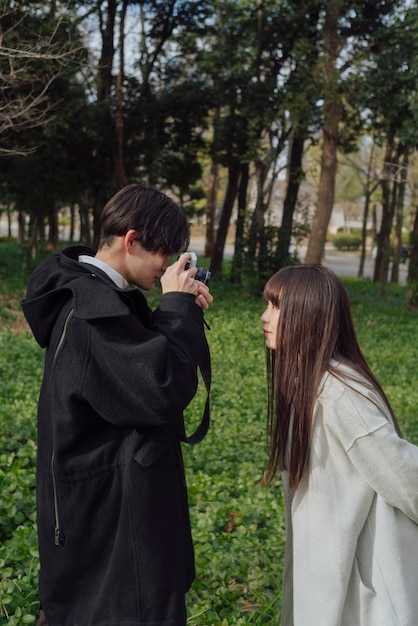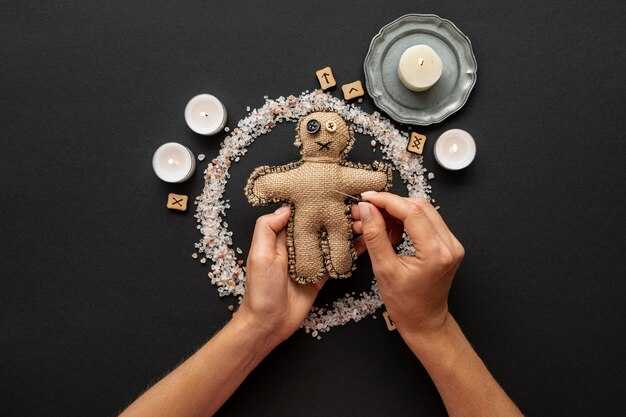Think of these two leaves as a picture of your relationship. I plucked them from the same flourishing plant—one received sunlight, water and good soil; the other was deprived and withered. That outcome isn’t surprising: we all understand what a plant needs to live. The real question is, do you know what your relationship needs to survive? What counts as the “sunlight” and “water” for the two of you? Some actions nourish a partnership; others slowly kill it. We often act shocked when love fades, saying things like “we just fell out of love” or “I don’t know what happened,” but more often the partnership has been neglected—sometimes by one person, sometimes by both—and that neglect comes with consequences. If you’ve never asked your partner the simple question “What do you think a relationship needs in order to last?” there’s no better time than now. When they answer, listen fully: don’t interrupt, correct, roll your eyes or react defensively. Seek first to understand—nod, ask open-ended follow-ups such as “What makes you say that?” or “Why is that important to you?” or “Can you give examples where that worked?” or “How would that look here?” If you hope to build a genuine partnership, you must care about what the other person believes is essential. Most people never ask, yet everyone has an answer—and that answer shapes everything about the relationship. Stop pretending the issue doesn’t exist and start a real conversation. So what does a relationship require? First and always: safety. You entered this union because you wanted to feel something with another person—love, closeness, connection—and those things cannot be sustained without physical and emotional safety. Violence, aggression or rage have no place; physical harm should be treated with zero tolerance. If you’ve acted that way, know there can be compassion for the pain that led to it, but there is also accountability: you must seek help, heal, and try to repair the harm you caused. No one deserves to be abused—hurt people do hurt people—and if you’ve been a victim of abuse, I’m deeply sorry. You are not to blame; you’re valuable and worthy of kindness and respect. Emotional safety matters just as much. A relationship cannot flourish where constant yelling, name-calling, contempt or disrespect are the norm. It doesn’t matter whether that’s how you grew up or how past relationships functioned—those patterns are neither healthy nor sustainable and they push people away instead of drawing them together. This doesn’t mean fights won’t happen or temper won’t flare; it means we must aim for maturity, which looks like accountability—not blaming our parents or our partner, but accepting responsibility for how we respond. Maturity includes the courage to apologize—apology is strength, humility and attractiveness. It means recognizing our triggers and harmful default reactions, analyzing conflicts to learn and grow, and pursuing progress over perfection. Growth is learning to speak to one another with respect and vulnerability, to express needs without blame or criticism, to step away when heated, to pause briefly instead of reflexively interrupting or dismissing, and to be curious about what the other person is feeling. Some will object: “I only yell because they neglect me or never listen.” Those complaints are related; neither side is inherently justified in responding with contempt. Relationships can keep going in those poisoned conditions—the plant remains in its pot—but it’s not living or growing. That was my past relationship. I’m not pitching advice for profit; I’m simply reminding you that relationships have destinations: some paths bring life, others lead to death. Are you feeding your partnership or depriving it? One person cannot supply all the water and light a relationship needs; it takes both partners. There’s no room for selfishness—your needs matter, but so do theirs. If you expect a love to survive, stop acting as if your needs are superior. Dominance and pride have no place here; you are equals and deserve mutual respect. If you’re not giving respect, you won’t receive it back—maybe that strategy works at work, but it destroys romantic bonds. No one “makes” you rage or be cruel, though those responses are often rooted in past wounds. I can empathize with how childhood pain taught some people to become hypervigilant, anxious, or emotionally shut down; those coping strategies made sense once. Still, healing is our responsibility. We choose whether to stay ignorant about what intimacy requires or to learn different ways of relating. I know how hard it is—I used to bottle up needs and boundaries, then turn resentful and explosive, calling names or dismissing people to punish them because I wanted them to feel my pain. If you feel taken for granted, your anger and resentment are signaling real unmet needs—feeling abandoned or neglected is valid. But retaliation isn’t the answer. The healthier route is clearer communication, advocating for yourself, and enforcing boundaries. You might think, “They won’t listen; they’re a narcissist,” but that mindset leads to the relationship’s death. Thriving relationships are built on mutual care for each other’s feelings. One-sided concern produces loneliness and disconnection; without trust there’s no intimacy. Dr. Sue Johnson, who developed Emotionally Focused Therapy, argues there’s a single critical factor in relationships: emotional responsiveness. Trust is more than believing your partner won’t cheat; it’s the confidence that they will be there for you, that they care what you need to feel safe, loved, appreciated and desired, and that they’ll respond with kindness when you are vulnerable. Trust asks for consistency more than perfection. If you truly love someone, you should want to be the kind of person they can count on when they reach for you. This dynamic shows up repeatedly in conflict: learn how to bring up issues with respect and love, and learn how to receive your partner’s concerns with curiosity, empathy and validation. I’ve made a video about stopping destructive fighting and how to change these patterns—it’s worth watching if you want practical steps—but the central point here is this: everyone is more sensitive than they think, even those who hide behind walls. High defenses, numbing and dismissiveness often stem from deep wounds of past neglect. When someone reaches out vulnerably and is rejected or invalidated, it creates a fresh emotional wound and people begin to detach—the very thing no one wants. The solution is renewed consideration. Consideration sits at the heart of a healthy, reciprocal relationship. Imagine a partnership where both people feel safe to share their inner world, a relationship where you know you won’t be exploited or shamed for being open—wouldn’t that be what most of us want? If you are in a relationship, be that considerate person. If you’re dating someone who doesn’t consider you, end it—hard as that may be—because you deserve better. If you’re married and feel chronically unconsidered, that’s a complex situation best addressed with a professional who can hear your whole story and offer guidance. But understand this: without consistent consideration, closeness cannot survive. If both of you want to stay, commit to honesty, vulnerability, and the deliberate work of being considerate of each other. Sometimes you’ll think you’re being considerate while your partner disagrees; in those moments it isn’t about who’s right, it’s about understanding the dynamic. Your plant isn’t flourishing—and that’s a fact, not an accusation. Get into a mindset to truly listen: validate feelings and vulnerabilities as real, and when you feel defensive, name that urge and explore where it comes from. You might say, “I care about how you feel, and I have a strong urge to defend myself right now. I’m frustrated because I don’t feel my efforts are seen, and that makes me feel inadequate and afraid I’ll be taken advantage of or never meet your standards. That fear makes me want to withdraw to avoid shame.” A partner who is considerate might answer, “Thank you for being vulnerable. I don’t want you to feel shame. I can imagine how painful it is to feel like your efforts aren’t enough. I don’t think you’re a bad partner; I just think we might show love differently. If you’re willing, let’s explore how to redirect some of what you’re already doing into the areas where I feel most connected.” See how far better that is than name-calling or falling silent and concluding, “Nothing I do will ever be enough”? Communication can be learned, but it requires honest self-reflection, emotional maturity, vulnerability, empathy and consideration. When trust and consideration exist, people become more flexible and less controlling. If one partner values alone time, respect that independence—but if you’re the one being given space, reciprocate with thoughtfulness: say how long you’ll be gone, when you’ll return, reassure them you’re looking forward to seeing them, and schedule a date night so they have something to anticipate. Small, deliberate acts like these often make the difference between a relationship thriving or merely surviving. Equal consideration removes unhealthy power dynamics; you influence one another, appreciate one another, and approach conflict as a team—having plans for how to handle disagreements before they escalate and holding each other accountable with love and respect. Dr. John Gottman calls this “accepting influence.” Imagine how fulfilling a relationship would be if both people genuinely accepted one another’s influence—being pliable, responsive to feedback, and willing to shift because you trust each other and feel bonded. With that mindset, it doesn’t matter whether the argument is about chores, parenting, moving, jobs, or the bedroom—the approach is the same: be considerate of how choices affect your partner and learn what makes them feel valued and desired in those areas. That’s how a relationship becomes more like a great friendship: when safety and trust exist you can relax, play and have fun together. Playfulness matters a great deal—fun bonds people, and it’s often how you first fell in love. Stress often steals the playful parts of a relationship, so it’s your job as partners to learn each other’s stressors, carry each other’s burdens, identify barriers, remove them where possible, and deliberately prioritize fun again. In healthy friendships, you give each other the benefit of the doubt and aren’t constantly protecting yourself from being taken for granted. Another essential ingredient is transparency—secrets erode trust, while honesty builds it. Have the courage to have the difficult conversations. Learn how your partner feels loved and valued, and also what pushes them away. Learn their triggers and insecurities. Invest deliberately in the relationship; be intentional and prioritize one another. Compliment each other, practice intimate conversations, and make time for real connection—the average couple talks far less than they should, and that decline correlates with growing dissatisfaction. Be physically affectionate: for many women, emotional safety and feeling valued outside the bedroom are prerequisites for desire inside it. Affection isn’t only about sex—touch her, kiss her, hug her without an agenda; that caring throughout the day often becomes the greatest turn-on. I recognize some of this might feel distant or impossible given the partners you’ve had or even the one you have now; I don’t underestimate how hard change can be. Healthy relationships require two willing participants, and some of you have only one willing person at the moment. Does that mean you’ll never experience true intimacy with your current partner? Maybe, maybe not. When one person changes—chooses not to fight, learns to express anger constructively, self-regulate, set healthy boundaries, and be vulnerable without yelling—it fosters growth in the relationship. Change in you can positively affect the partnership; I don’t claim it always saves a relationship, but it does improve it. Sometimes, when you become the best version of yourself, the relationship ends—not because you failed, but because the other person wasn’t prepared to do the work. In some cases, you may realize the plant is dying and must leave; in others, you might stay and say plainly, “I can’t be in this relationship as it is anymore, but I’m willing to go to counseling and do the hard work to learn how to love you so we can feel close again. I’ll start fresh with you on a foundation of trust, respect and intimacy. I don’t see you as the enemy, and I won’t let a counselor make you the scapegoat. I’ve done what I can, but it’s not working for me, so if you want this to continue, you need to come with me and learn what efforts we both must make.” That may not guarantee your partner will join you—love is a risk and connection takes two—but it’s your best shot at the relationship you deserve. If both people commit, and if you change your mindset and set concrete goals, you can plant seeds of safety, trust and emotional responsiveness—and with consistent water and sunlight, those seeds can grow into something beautiful. I don’t know your private story, but I want the best for you and I believe healing is possible; I’ve seen it. When you go to a wedding you often think, “Maybe they can make it.” They can—and so can you—but it will take work. Many people around you might be unknowingly depriving your relationship because they’re protecting themselves with shame or fear. Have the humility and courage to approach your partner and say, “I’m sorry— I think I’ve been hurting us. Let’s start over, but not by glossing over the hurt. I want to wade through it with you. I’m willing to do the work to repair and reconnect. I’ll be honest even when it’s uncomfortable. I want to build safety and respect. I know I’ll mess up and it will be difficult, but you’re worth it. We’re worth it. Help me learn how to love again and go deep with you like we did at the beginning.” That is the path to a relationship that thrives—not perfect, but loving and respectful. Thank you for reading; I’m rooting for you and keeping you in my prayers.



 My Relationship went from Dead to Alive when I understood THIS…">
My Relationship went from Dead to Alive when I understood THIS…">

 The Final Cruel Trick Avoidants Use Once You Stop Caring (It Cuts Deep)">
The Final Cruel Trick Avoidants Use Once You Stop Caring (It Cuts Deep)">
 愛だけでは、関係は救えない!">
愛だけでは、関係は救えない!">
 関係が生き残るには、コレが不可欠">
関係が生き残るには、コレが不可欠">
 The Exact Price Avoidants Pay For Losing You.">
The Exact Price Avoidants Pay For Losing You.">
 How to Handle Difficult & Toxic People – Take Back Your Peace and Power">
How to Handle Difficult & Toxic People – Take Back Your Peace and Power">
 Why You Can’t Stop Obsessing Over the Abuser (Even After You Leave)">
Why You Can’t Stop Obsessing Over the Abuser (Even After You Leave)">
 Do Not Underestimate Avoidants: Architects of Deception | Avoidant Attachment Style">
Do Not Underestimate Avoidants: Architects of Deception | Avoidant Attachment Style">
 Women aren’t Attracted to "Nice Guys"">
Women aren’t Attracted to "Nice Guys"">
 What to Do When You’re In Love With Someone Who Can Ruin Your Life">
What to Do When You’re In Love With Someone Who Can Ruin Your Life">
 Stop Having Sex?! Why a Hiatus Unlocks an Avoidant’s Deepest Bond">
Stop Having Sex?! Why a Hiatus Unlocks an Avoidant’s Deepest Bond">